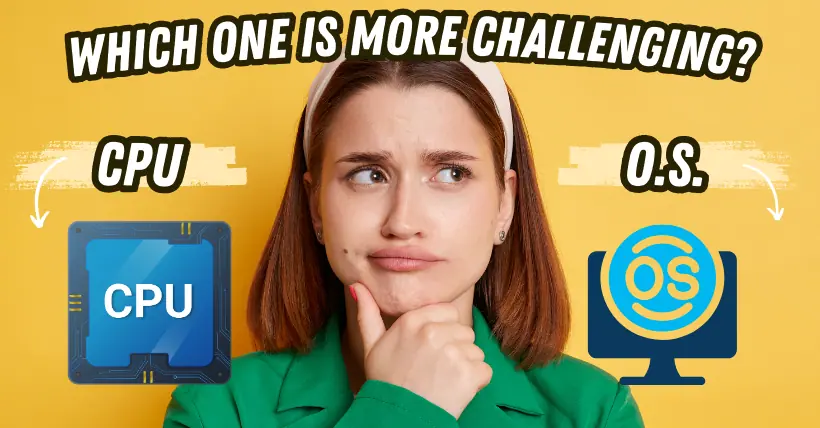From a technical perspective, CPUs are more difficult; from a market perspective, operating systems are more difficult. If the premise is simply to create the product (either the CPU or the operating system), then the CPU is more difficult.
However, if the premise is to create a product that is widely accepted and used, then the operating system is more difficult.
Therefore, many things cannot be judged solely by technical difficulty. Although CPUs are challenging, it is still possible to create a product that is on par with the world’s most advanced CPUs. If it is good enough, people will use it.
But operating systems are different. Even if you create an operating system that is better than Microsoft’s, Google’s, or Apple’s, it doesn’t mean people will use it, because the barrier to entry for operating systems is not technology, but the developer ecosystem.
Microsoft, Google, and Apple are powerful because they have vast numbers of users. Having users means developers will create software for these systems in order to make money, and as the software ecosystem grows, more users will come, creating a barrier to entry. A similar example is WeChat.
Thus, many teams can develop an operating system or a better version of WeChat, but they are still far from success.
For operating systems, no users = no developers = no software = no users. This is a vicious cycle, a cycle that even Microsoft could not break after eight years of developing Windows Phone.
The same applies to WeChat. If my friends aren’t on this platform, I won’t use it. And because I don’t use it, my friends won’t use it either, so I don’t use it, and eventually, it becomes a vicious cycle.

Disclaimer:
- This channel does not make any representations or warranties regarding the availability, accuracy, timeliness, effectiveness, or completeness of any information posted. It hereby disclaims any liability or consequences arising from the use of the information.
- This channel is non-commercial and non-profit. The re-posted content does not signify endorsement of its views or responsibility for its authenticity. It does not intend to constitute any other guidance. This channel is not liable for any inaccuracies or errors in the re-posted or published information, directly or indirectly.
- Some data, materials, text, images, etc., used in this channel are sourced from the internet, and all reposts are duly credited to their sources. If you discover any work that infringes on your intellectual property rights or personal legal interests, please contact us, and we will promptly modify or remove it.








